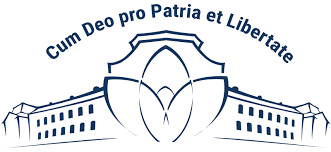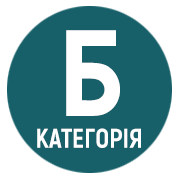DETERMINING THE DEMAND FOR MILITARY TOURISM PRODUCTS MONG HUNGARIAN YOUTH
DOI:
https://doi.org/10.32782/2786-5843/2024-3-10Keywords:
military tourism, demand for military-themed tours, consumer of military tourism, supply in the market of military tourism.Abstract
Relevance of the study: military tourism is recognised as one of the promising areas of post-war recovery of the Ukrainian tourism market, which raises the issue of studying the demand for this type of service in order to form an appropriate supply. Object of research: potential demand for domestic military tourism products among Hungarian students. Purpose of the study: to study the demand for military tours to post-war Ukraine among Hungarian students and to develop recommendations for this category of consumers. Research methodology: systematic approach, methods of analysis and synthesis, modelling and forecasting, questionnaires, systematisation and generalisation. Research results: it was found that respondents are poorly aware of the essence of military tourism, despite the fact that they have been consumers of its individual tourist products. The interest in travel that satisfies the interest in wars and military conflicts is limited. Only about 20% admit the possibility of visiting post-war Ukraine; preference is given to educational and adventure and entertainment tours. The first priority is security, followed by professional support. The respondents consider the comfort of accommodation and the variety of offers as secondary; the cost of services is not taken into account. Recommendation for this target audience: to include visits to places of remembrance and thematic museums related to the First and Second World Wars in the offer. Practical implications: the results obtained should be taken into account when forming offers for tourists from Hungary. Conclusions: the study has established the absence of significant demand among Hungarian students for military tours to post-war Ukraine. Prospects for further research are to further study the consumer market in order to determine the target audience of various subtypes of military tourism.
References
Танасійчук О. Український туризм після війни буде іншим. Укрінформ. 10.03.2023. URL: https://www.ukrinform.ua/rubric-world/3680587-ukrainskij-turizm-pisla-peremogi-bude-insim.html (дата звернення: 28 червня 2024 р.)
Каднічанський Д., Каднічанська М. Мілітарний туризм: проблематика термінології та класифікації. Географія, економіка і туризм: національний та міжнародний досвід : мат-ли XIV Міжнар. наук. конф., м. Львів, 9 жовтня 2020 р. Львів: ЛНУ імені Івана Франка, 2020. С.132–135.
Гуда А. Концептуальні аспекти воєнного туризму. Географічний часопис Волинського національного університету імені Лесі Українки. 2024. №3(3), С. 124–133. DOI: https://doi.org/10.32782/geochasvnu.
Zienkiewicz A., Podciborski T., Terebukh A. Alternative uses of former coastal artillery military bases in Koszalin coastland in view of the growing popularity of military tourism. Acta Scientiarum Polonorum Administratio Locorum. 2023. Vol. 22(1). Р. 113–123. DOI: https://doi.org/10.31648/aspal.8473
Bobek V., Gotal G., Horvat T. Impacts of the 2022 war in Ukraine on the travel habits of Ukrainian tourists. Naše Gospodarstvo/ Our Economy. 2023. Vol. 69(3). Р. 56–67. DOI: 10.2478/ ngoe-2023-0018.
Moreno-Lobato A., Costa С., Hernаndez-Mogoll J.M. Value creation in the Cultural Routes of the European Council through the design of military tourism products. Journal of Tourіsm & Development. 2020. № 34. Р. 53–64. DOI: 10.34624/rtd.v0i34.22336
Micić J., Denda S., Jovanović R. Illuminating darkness through vacations. Journal of the Geographical Institute Jovan Cvijic. 2024. № 74(1). Р. 77–91. https://doi.org/10.2298/IJGI230628005M
Кушнарьов В., Поліщук О. Мілітарі-туризм як інноваційний напрям екстремального та пізнавально-розважального туризму. Вісник Київського національного університету культури і мистецтв. 2018. № 1. С. 107–118.
Лущик М.В. Про поняття та види військового туризму. Наукові перспективи. 2021. № 7(13). С. 241–254. DOI: https://doi.org/10.52058/2708-7530-2021-7(13)-241-254
Katiniotis D., Botsis М. Monuments of Naval Operations as Starting Points for Military Tourism: The Case Of Amvrakikos Gulf, Greece. IOSR Journal Of Humanities And Social Science (IOSR-JHSS). Vol. 28, Issue 10, Series 4 (October, 2023) Р. 50–57. DOI:10.9790/0837-2810045057
Гамкало М., Каднічанський Д. Аспекти розвитку воєнного туризму в Україні в контексті російсько-української війни ХХІ століття. Географія, економіка і туризм: національний та міжнародний досвід : мат-ли XVІ наук. конф. з міжнар. участю. Львів, 2022. С. 73–78.
Halahan О., Kovtoniuk О., Korohoda N., Braychevskyy Yu. Military landscapes of the Pryvododilni Gorgany as a premise for increasing tourist attractiveness of the area (the case of the Chorna Klyva mountain). Journal of Geology, Geography and Geoecology. 2020. Vol. 29(2). Р. 269–278. DOI: https://doi.org/https://doi.org/10.15421/112025






